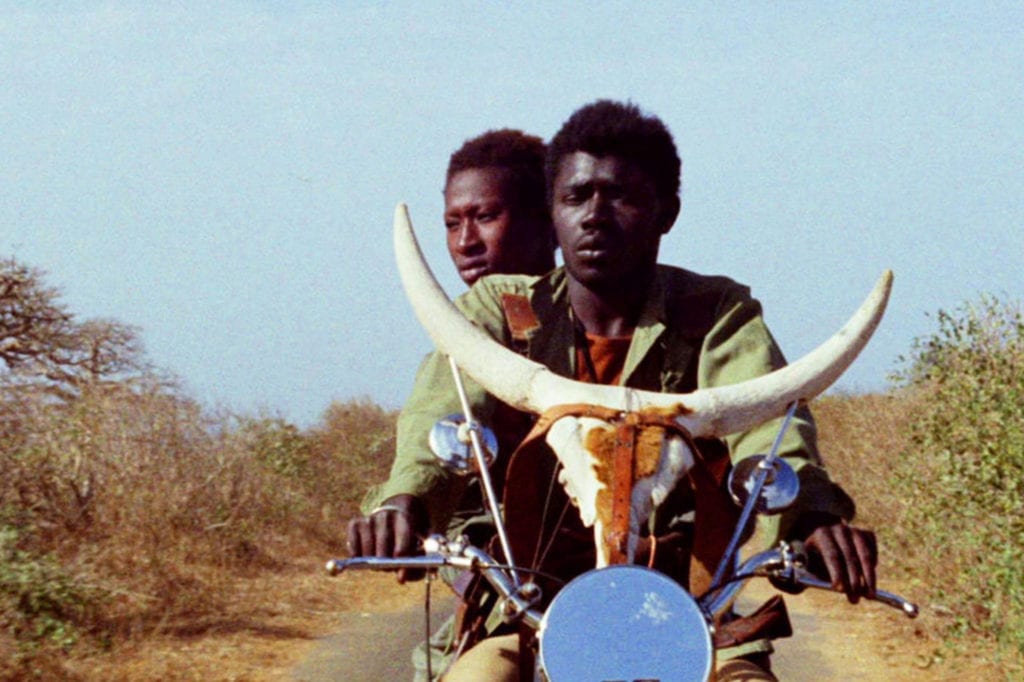
Dir. Djibril Diop Mambéty. 95 minutes.
3.5/5
The year is 1973; the place, Senegal. Mory (Magaye Niang) has big dreams, namely to leave his squalid homeland for France. Together with Anta, (Mareme Niang) an ambitious student, Mory schemes to pick up the necessary money anywhere he can.
Restored by Martin Scorsese’s World Cinema Project, “Touki Bouki” is a poem in coarse words, at once lyrical and ugly. Scenes of Mory cruising around Dakar on a bull-horned motorcycle are intercut with handheld footage of cows being slaughtered halal-style. It’s not difficult to see why this film would resonate with Scorsese: half a world away from the mean streets of Brooklyn is an equally brutal and labyrinthine place, to be escaped by any hustle necessary. Director Djibril Diop Mambéty’s feverish, quick-cutting cinematography owes more to the French New Wave than to other African movies of the ’70s.
Between its bovine bloodletting and its laughable portrayal of a lecherous gay man conned by Mory, “Touki Bouki” won’t appeal to the easily ruffled. But its documentary-style portrayal of Senegalese street life is absolutely real — perhaps the only chance Westerners will have to be an “invisible observer” in such a setting.
“Touki Bouki” is also one of the few internationally known films recorded in Wolof, a West African language with an unusual, angular sound.




